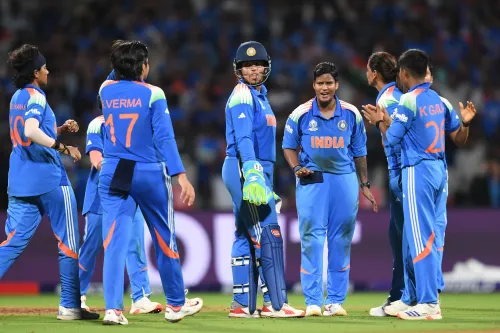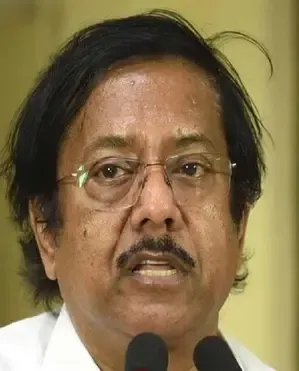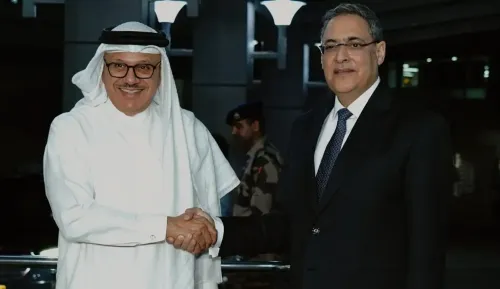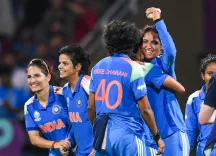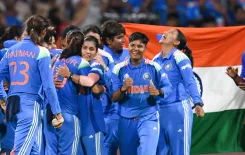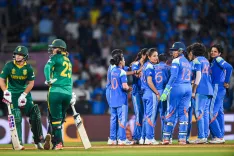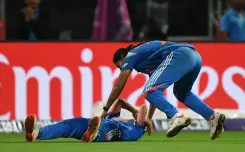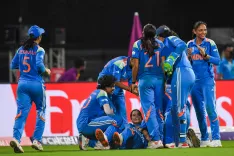Opposition Rally: Trinamool Congress to Skip Stalin's JAC Gathering
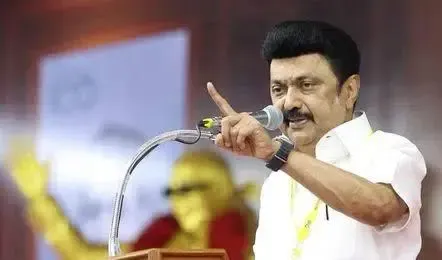
Synopsis
Key Takeaways
- Key opposition leaders are uniting against BJP's delimitation proposal.
- Trinamool Congress opts out of the JAC meeting.
- DMK argues the proposal threatens India's federal balance.
- Concerns about representation for southern and eastern states.
- Focus on legal strategies to challenge the delimitation process.
Chennai, March 22 (NationPress) With three Chief Ministers, one Deputy Chief Minister, and numerous senior leaders from the Opposition, including the Congress, attending the anti-delimitation Joint Action Council (JAC) meeting this Saturday in Chennai, Tamil Nadu Chief Minister M.K. Stalin has become a pivotal figure for the opposition against the BJP on a national scale. However, a significant player in the Opposition, the Trinamool Congress, has opted to forgo the meeting.
The inaugural session of the JAC on “Fair Delimitation,” organized by the DMK in Chennai, will see the involvement of Chief Ministers Pinarayi Vijayan of Kerala, A. Revanth Reddy of Telangana, and Bhagwant Mann of Punjab, alongside D.K. Shivakumar, the Deputy Chief Minister of Karnataka, as well as representatives from the Biju Janata Dal (BJD), Bharat Rashtra Samithi (BRS), and the Congress.
Despite the invitation, West Bengal’s ruling Trinamool Congress decided against sending a representative.
This gathering represents the culmination of CM Stalin’s expanding outreach, which commenced with an all-party conference in Tamil Nadu on March 5.
During that earlier conference, 58 registered political parties—excluding the BJP—set aside their ideological differences to present a united front against the delimitation process proposed for 2026.
The DMK and its allies contend that the existing delimitation proposal jeopardizes India’s federal equilibrium.
They express concerns that it will unfairly diminish representation for southern and eastern states—regions that have made significant strides in population management, economic progress, healthcare, education, and social welfare.
Even with Union Home Minister Amit Shah’s assurance last month in Coimbatore that the southern states would not lose any parliamentary seats, the Tamil Nadu government has chosen to proceed with the JAC meeting.
The DMK asserts that Shah’s comments, made during a public rally and not in Parliament or any official setting, are vague and not legally binding.
“The delimitation process as it stands will undermine the very foundation of Indian federalism,” CM Stalin cautioned in a video message distributed on Friday.
“States that have responsibly managed population growth and contributed to national progress must not face penalties. It will erode the essence of democracy itself.”
The key agenda items include extending the current delimitation framework (based on the 1971 Census) for an additional 30 years beyond 2026.
The agenda also involves drafting a resolution calling for a reassessment of the proposed delimitation process, examining legal avenues, including petitions to the Supreme Court, and launching public awareness initiatives in the relevant states.
This initiative, which began as a regional effort in Tamil Nadu, has now transformed into what CM Stalin describes as a national movement.
“States across India are uniting to demand equitable representation. This is more than a meeting—it is the inception of a movement that will influence the future of our country,” he proclaimed.
Notably, this meeting is characterized not as a traditional political coalition event but as an issue-driven convergence. Even the Opposition INDIA bloc has not hosted such a high-profile gathering.
The broader concern among the participating states is that any alterations based on the latest census data could dilute their representation in the Lok Sabha and diminish their influence over policy-making and budget allocations.
Critics argue that states that have struggled with effective governance and population control might gain more seats and political clout, thus tipping the federal balance in favor of northern states—many of which are strongholds of the BJP.
According to sources, Saturday’s meeting will emphasize formulating a united legal and political strategy to contest the potential ramifications of the 2026 delimitation.
Strategies include constitutional petitions, interventions in the Supreme Court, and collective efforts to elevate the issue at the national level—especially within the INDIA bloc.
With this meeting, CM Stalin and the DMK will strategically position themselves at the heart of a national political dialogue with significant implications for India’s federal structure.
aal/rad

